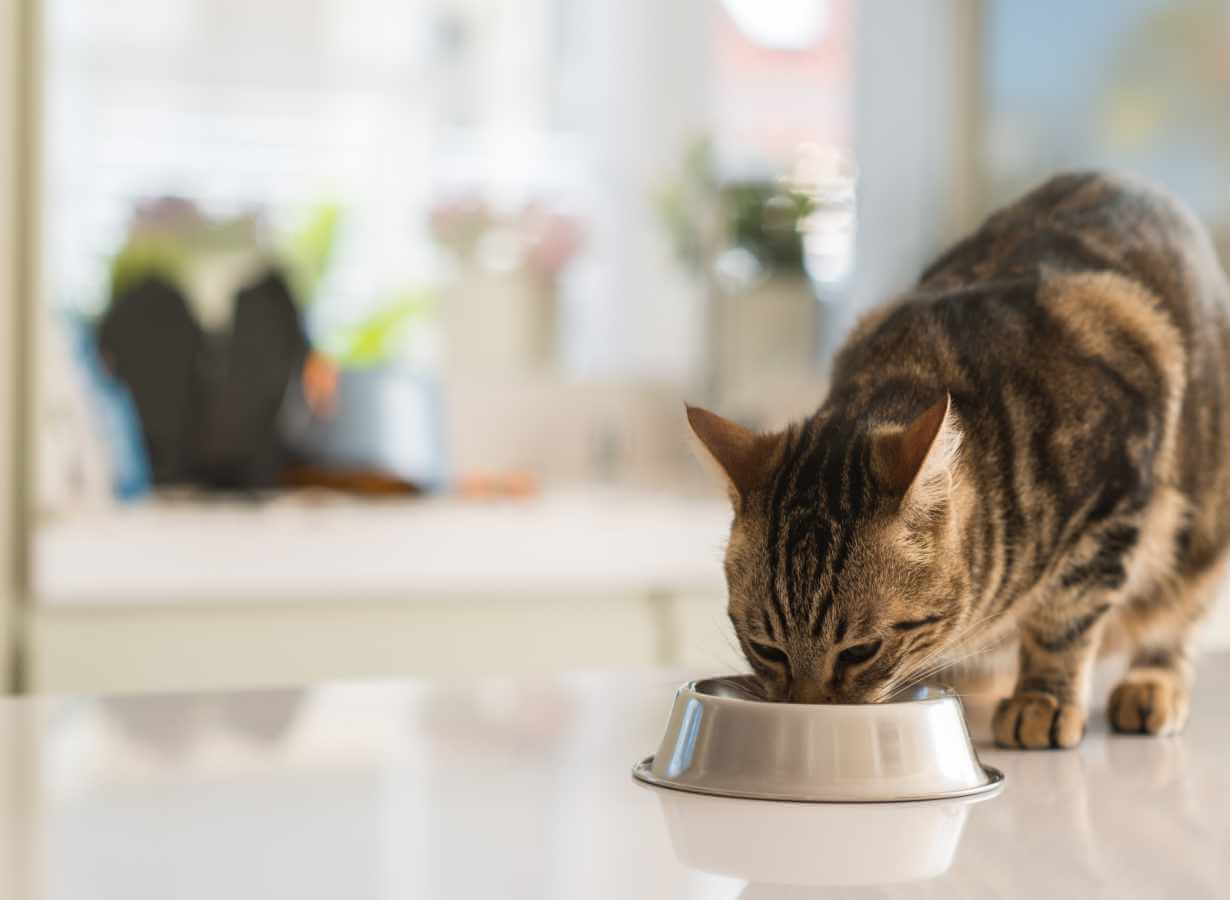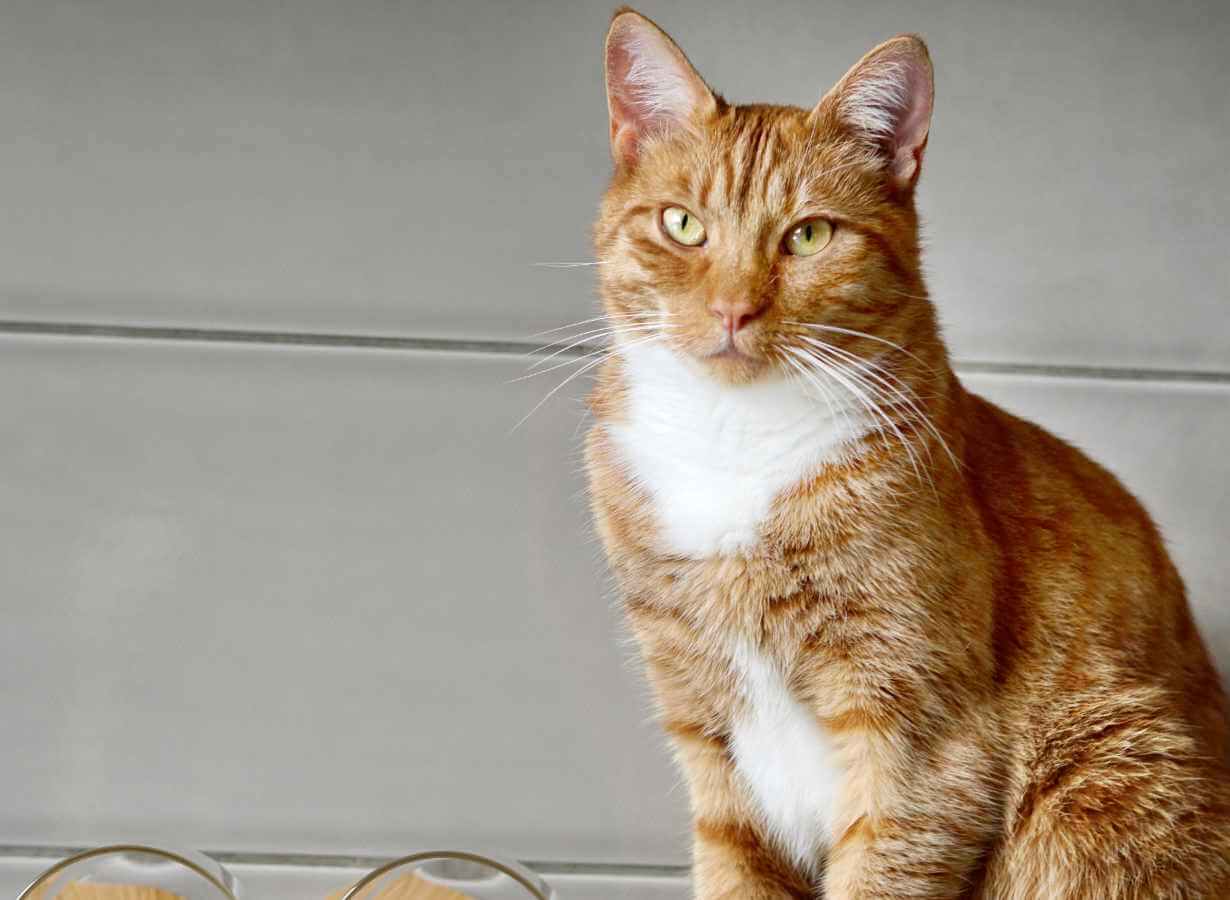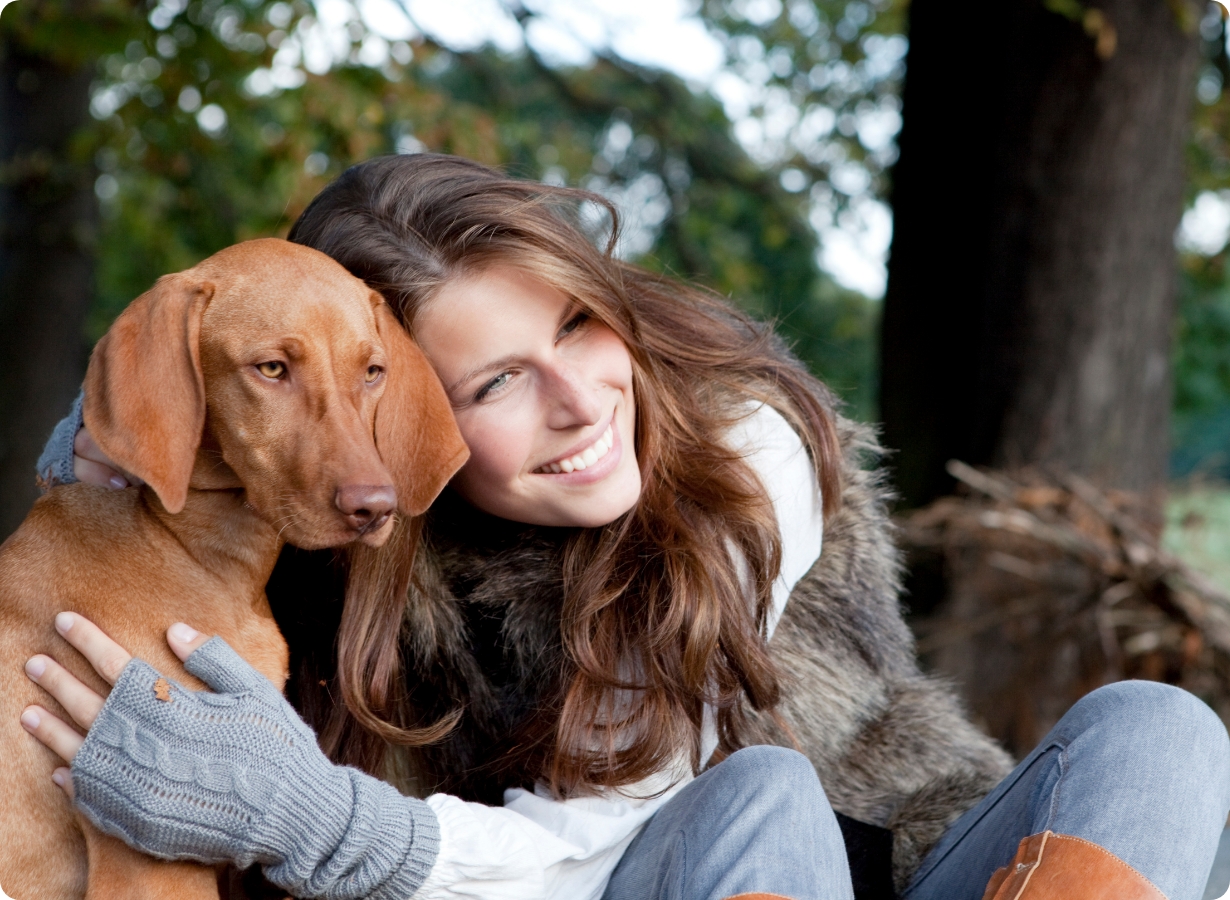Included in this article:
- Sexually mature cats
- Pregnancy - Symptoms
- Complications during pregnancy
- Food for pregnant cats
- Birth of the kittens
- Points to note
- Product tips
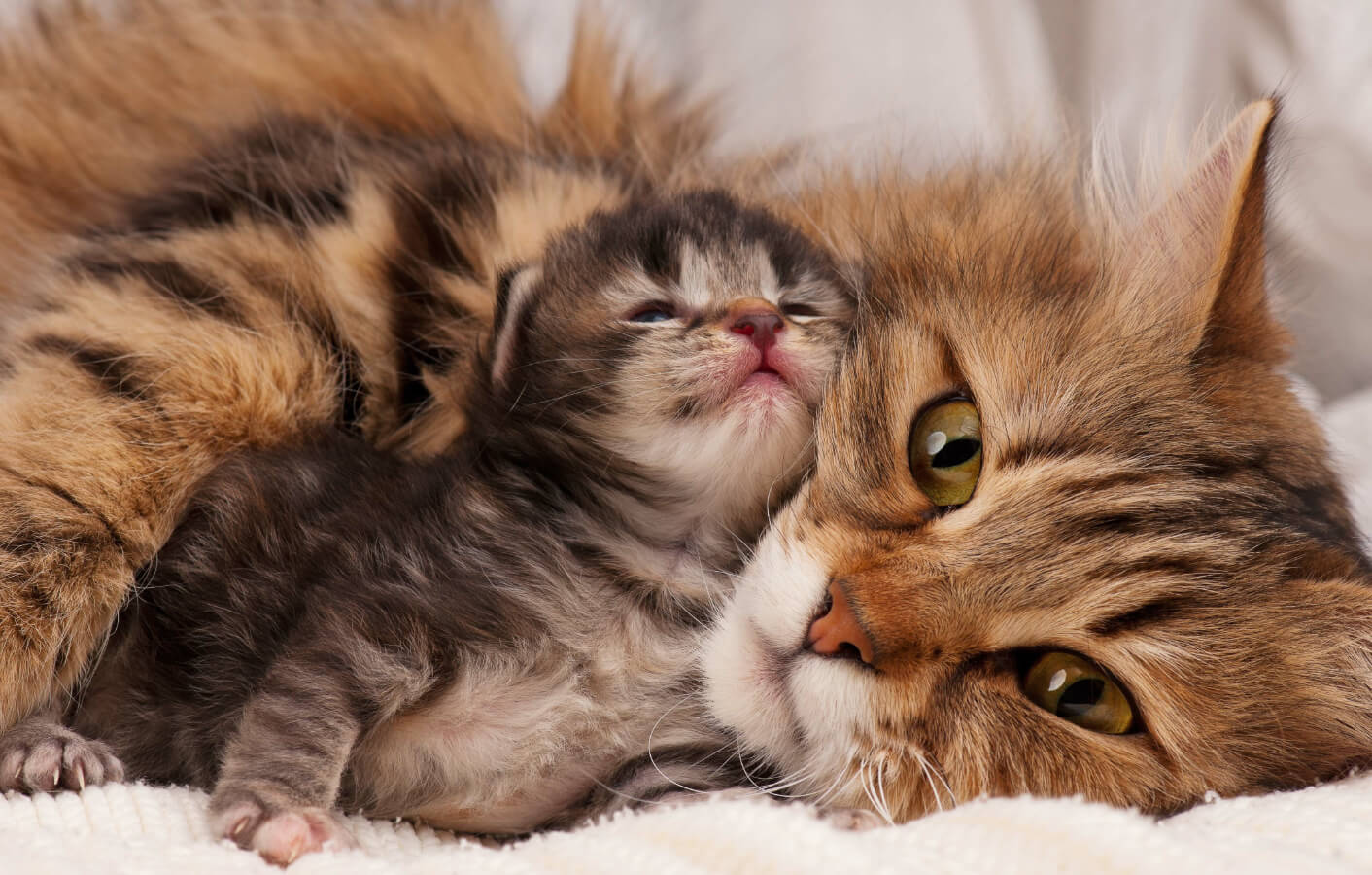
My cat is pregnant - what now?
Did you know that certain cat breeds, such as Siamese cats, can become pregnant from the age of 4 months? Although many owners have their cats neutered at an early age in consultation with their vets, pregnancy often occurs unintentionally among outdoor cats. Kittens are cute - but they also come with a lot of responsibility. You should make sure that the kittens find a loving new home.
In this article you will find tips on pregnancy and learn how you can best support your cat during this time.
When is a cat sexually mature and how does this show?
Depending on the breed, female cats become sexually mature between seven and eight months of age. In longhaired purebred cats such as Main Coones, it can take up to more than a year before the first heat occurs.
If cats become pregnant right at the onset of sexual maturity, this is associated with health risks. In addition, young cat mothers often reject their babies, which is why a cat under one year of age should not become a mum.
A cat's readiness to mate is clearly expressed in its behaviour: She tends to be restless and eats less. Particularly heartbreaking is the meowing for minutes, reminiscent of a crying baby. The term "rolling" also refers to a typical behaviour of cats ready to mate: They roll on the floor, rub themselves intensively against objects and spread their scent marks in the process.
If you stroke the back of a cat in heat, it will stick its bottom up and hold its tail to the side. Mating triggers ovulation in the cat. If a suitable male is found, the heat lasts only 1 to 2 days and can often pass unnoticed. If there is no contact, this phase lasts about 1 week.
How can I tell that my cat is pregnant?
The pregnancy of a cat lasts about nine weeks. The cat's belly grows late in the pregnancy. External changes first affect the teats, which become larger and pinker in week 3 of pregnancy. In addition, her appetite increases because she needs more energy.
As with humans, nausea and vomiting, weight gain and mood swings may occur. It's not uncommon for an expectant mama cat to become clingy at first, then distance herself from you again. Let her have her space.
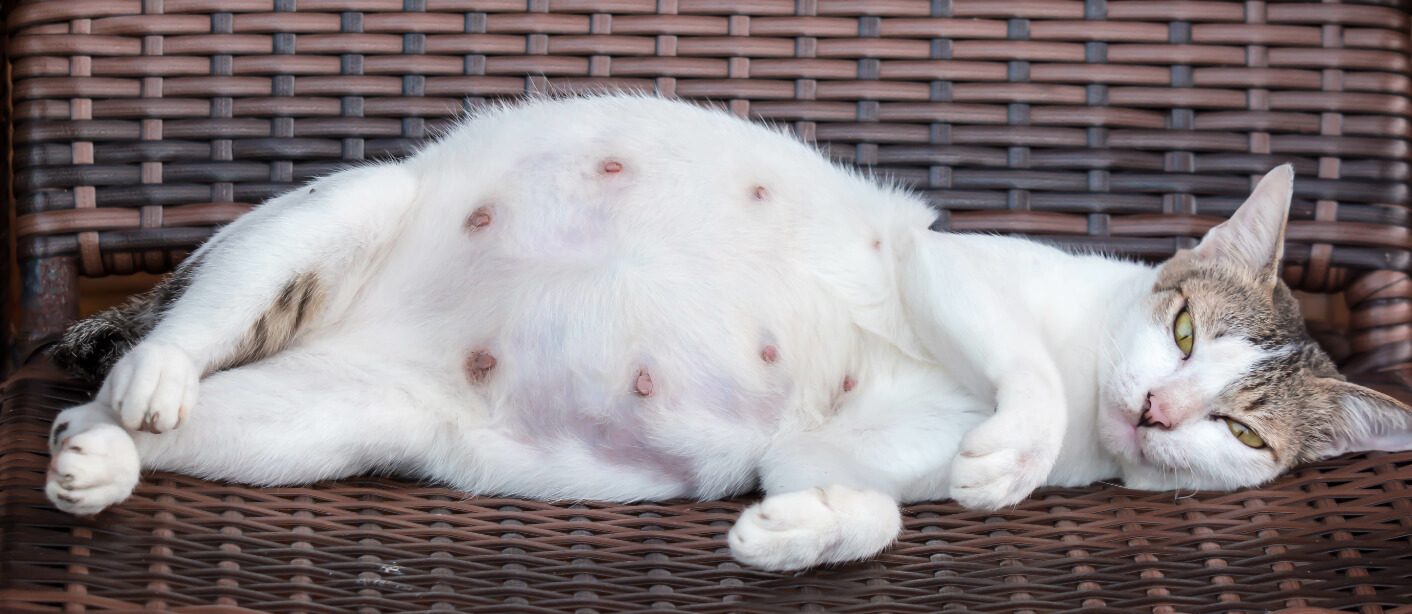
Stages of pregnancy
- Day 1 to 15: Embryos nest and begin to develop: Organ, skin and spinal cord, head and tail end and the first beginnings of development of the gastrointestinal system and blood circulation can be seen by ultrasound examination.
- Day 15 to 21: Head and abdomen are visible, a primitive gastrointestinal system exists, development of the mouth, cerebellum and fore and hind legs.
- Day 21 to 28: Development of the upper snout, ears and eyelids, formation of the toes, further development of the genitals, skeletal and muscular system, formation of the jaw, palate, tongue and salivary glands, growth of the teeth in the jaw, peritoneum, lungs and diaphragm are formed.
- Day 28 to 38: rapid growth (weight and size), triangular ears form, development of uterus in female foetus, growth of bladder, skin and claws, formation of iris (eye).
- Day 38 to 58: Skin layers thicken, tail and ears elongate, fur and pigmentation form.
- From day 58: Kittens are viable, all organs fully developed - nothing stands in the way of birth.
You want to know how big the kittens are in which phase? We will tell you:
Phase 1: 0 to 5 weeks
- 5 to 6 days: Sesame seed (⌀ 1-1.5 mm)
- 15 days: rice grain (⌀ 2-10 mm)
- 18 to 19 days: blueberry (⌀ 7-18 mm)
- 25 to 27 days: strawberry (⌀ 2.1-4 cm)
- 28 to 32 days: plum (⌀ 2.5-5 cm)
- 33 to 38 days: tomato (⌀ 3.5-6 cm)
Phase 2: 6th week until birth
- 42 days: small potato (⌀ 5-8 cm)
- 44 days: apple (⌀ 6-9.5 cm)
- 48 days: pepper (⌀ 6.5-12.5 cm)
- 63 to 68 days: strawberry (formed catkin)
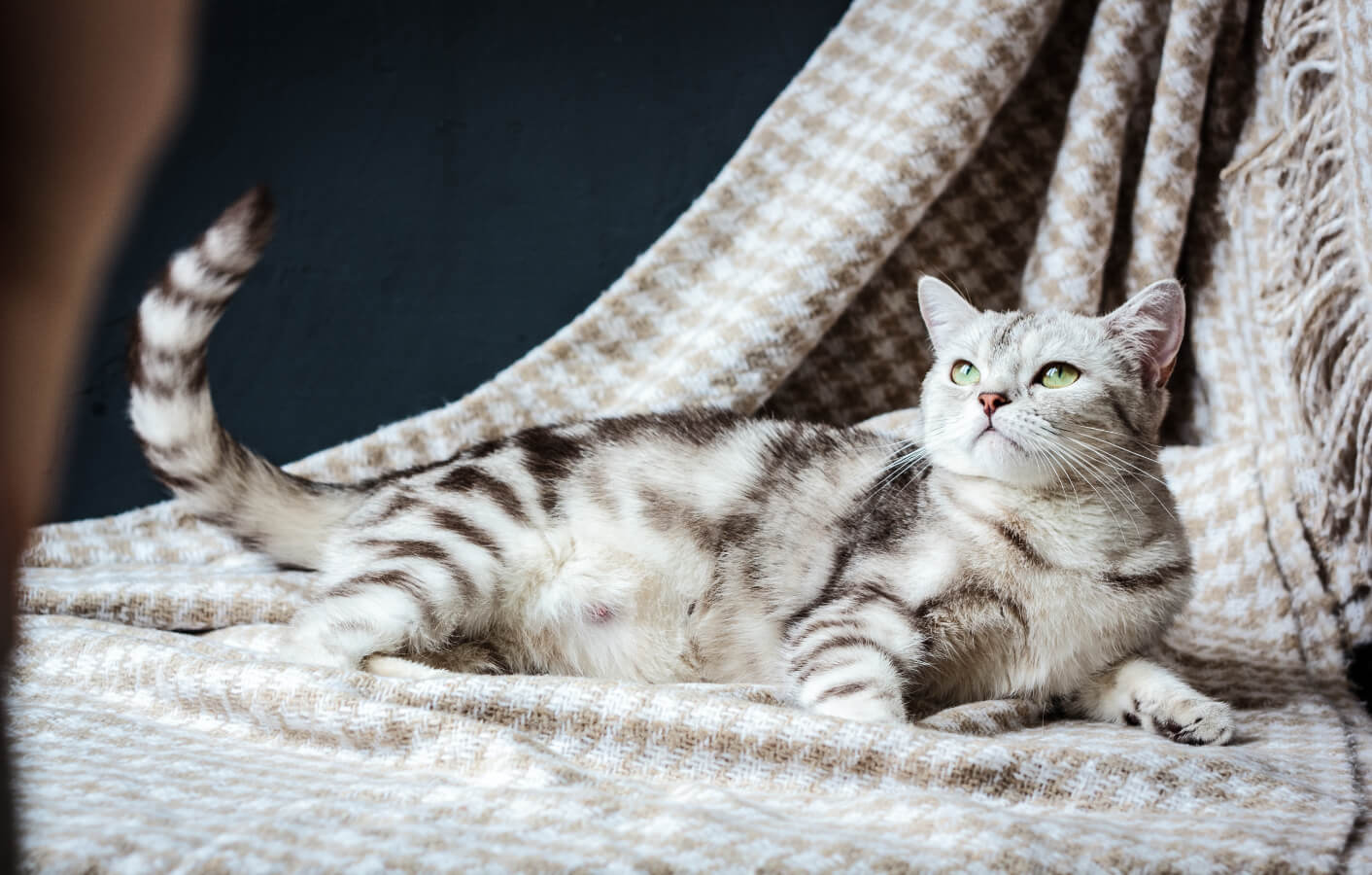
Complications during pregnancy
If your pregnant cat suddenly changes her behaviour, this may indicate a complication that needs medical attention. It is not always an emergency, but you should keep a close eye on your cat.
The following symptoms may indicate problems during pregnancy:
- Restlessness, confusion
- Loss of appetite
- Crying, pain
- Foul-smelling or bloody discharge
- Frequent licking of genitals
- Bleeding during pregnancy or birth
- Urinary problems (frequent visits to the litter box without urinating or blood in the urine)
This is how you can support your cat during pregnancy:
- Avoid arguments with other cats -
- Avoid stress from unfamiliar, new situations.
In the last week or two of her pregnancy, your cat will start building her nest. The perfect place for your cat to give birth to her babies is warm, safe and quiet. You can help your cat with this: Provide her with different baskets or boxes with cosy cushions. If she does choose a different place, you should leave it at that.
To prevent your cat from giving birth to her kittens outside without observation and help, you should keep your outdoor cat indoors.
Does my pregnant cat need special food?
For a healthy development, an adapted diet is important for your cat - this benefits both your cat and her babies.
You should follow these tips:
- Increase the food ration to one and a half times the usual ration.
- Use only high quality food
- Calcium in the food is important for the bone structure of the kittens and for the mother's milk production.
- Other important nutrients: vitamin A, taurine, arachidonic acid, copper and iron.
- Always provide fresh water
Maintain the diet during the first weeks of the kittens' lives. Wean slowly as kittens begin to eat solid food in addition to their mother's milk. Kittens also need special food.
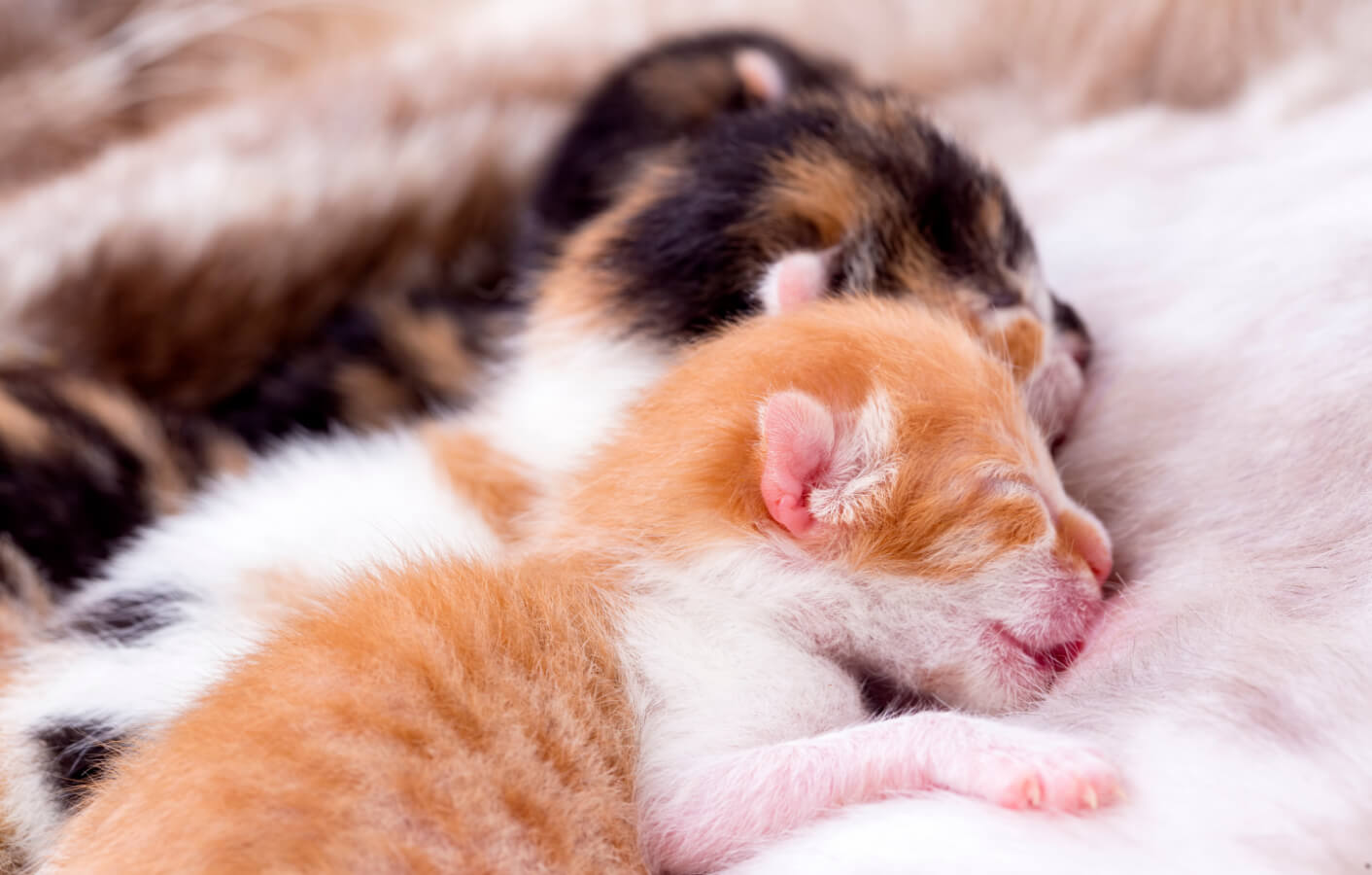
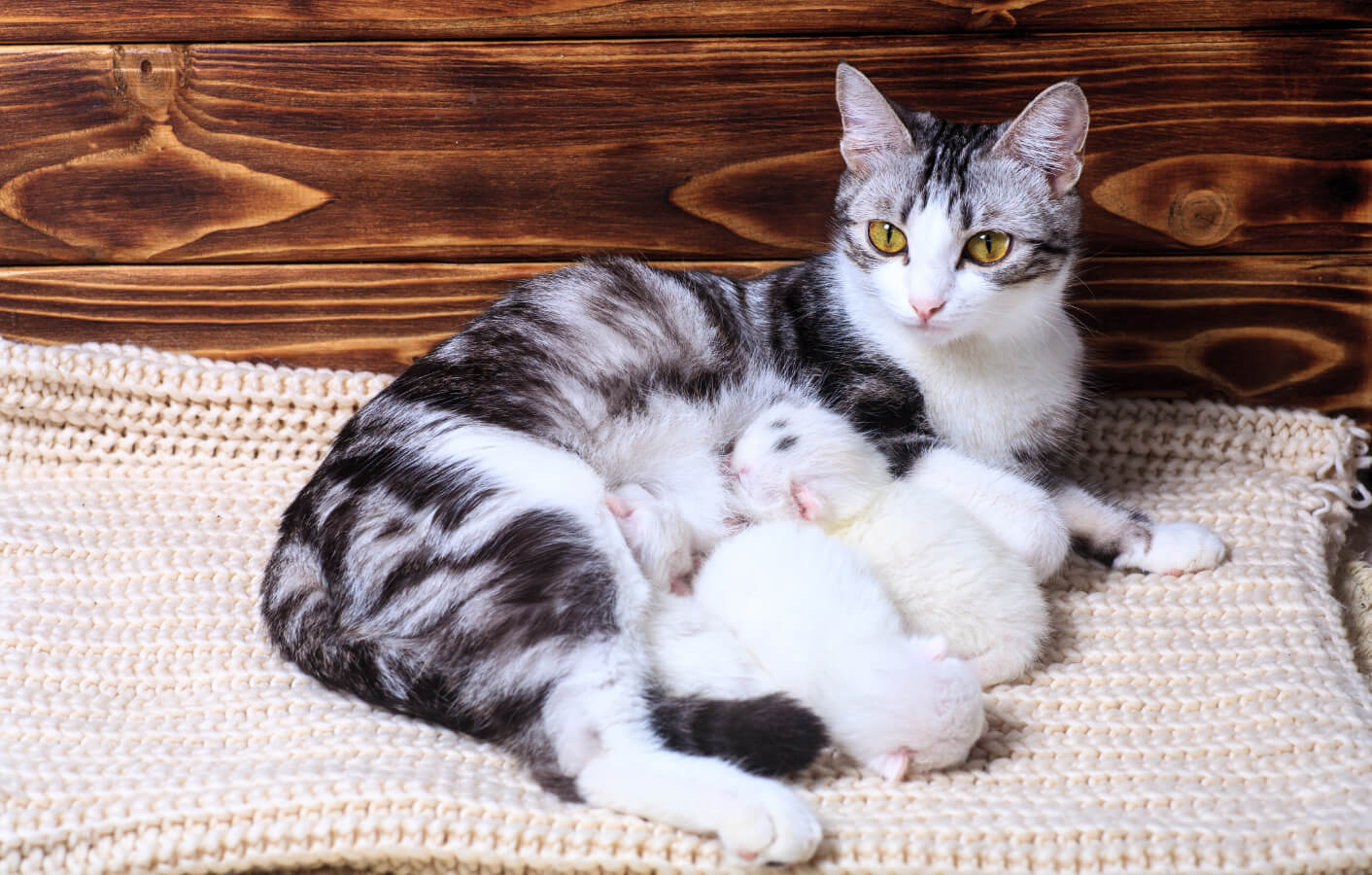
The time has come: What you should keep in mind during birth
When the time has come and the birth is imminent, you will notice it in your cat's behaviour:
- She runs around restlessly, meows a lot.
- She eats little one or two days before the birth.
- Constant grooming, also of the genitals
- She often goes to the litter box without doing her business.
Most cats manage the birth on their own - nevertheless you should be there for your cat in case of complications and medical help is needed.
Cats usually have several babies at once - there are about 30 minutes between births.
A birth is very exhausting for the cat. It can happen that a kitten is halfway out, but the mother cat cannot finish the process herself because she is exhausted. You can now help the kitten into the world with washed, clean hands by gently pulling.
If the cat does not clean its kittens immediately after birth, you can help it open its mouth and nose with a soft, clean kitchen paper. By making circular movements over the face and belly, the kitten will be able to breathe on its own.
A hot water bottle wrapped with a thick blanket will keep the kittens warm if their mother does not care for her kittens immediately after birth.
A kitten should have drunk milk no later than 30 minutes after birth. If this has not happened, you must carefully help it find its way to the mother cat's teat - or seek veterinary advice.
Attention: Shortly after birth, a cat can become pregnant again - this is very exhausting for its organism. Therefore, it is advisable to consult with the vet about neutering after the birth - especially if the mother cat is an outdoor cat.


